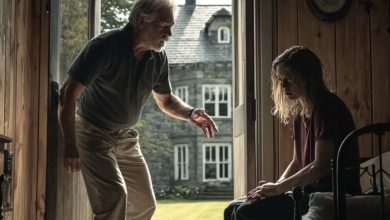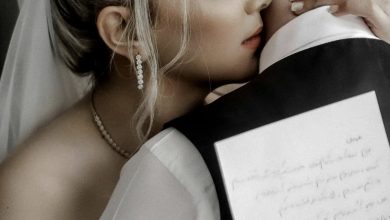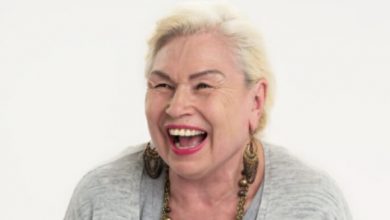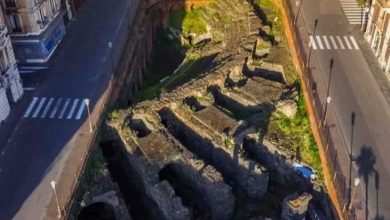The Hidden Secret Under Grandpa’s Bed: A Granddaughter’s Shocking Find
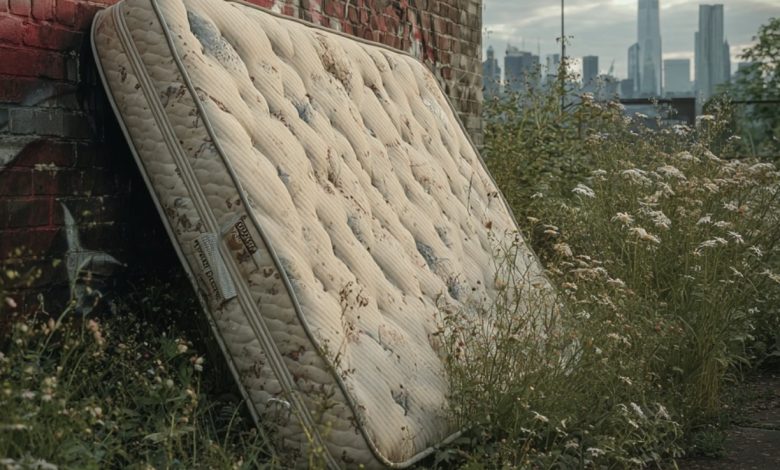
Brooke paused just inside the doorway of her grandfather’s bedroom, her senses instantly filling with years of memories. A faint ache in her chest reminded her that the man she loved so much was gone for good. She inhaled slowly, recalling the sound of his deep, comforting voice echoing down the hallway, calling her to come closer so he could give her one of his famous bear hugs.
“I still can’t believe he’s really gone,” she murmured, her fingertips brushing over the polished surface of an old oak dresser. The wood was smooth beneath her hand, as if it still held the warmth of his palm from all the times he had placed it there when she visited as a child.
The room carried familiar scents: the dusty aroma of leather-bound books, the lingering hint of pipe tobacco he liked to smoke in the evenings, and the unmistakable freshness of Aqua Velva aftershave he applied every morning. In that quiet moment, it was as if he had only stepped out for a moment, and any second she would hear his hearty laughter fill the space once more.
Brooke’s gaze drifted to a small table by the bed where a framed photograph rested. It was the only picture of her and her parents she had ever seen. She picked it up, noticing how their smiles—even in a black-and-white image—looked so full of life. Her mother’s gentle eyes and her father’s joyful grin reminded her of the love that had surrounded her until everything changed. She felt painfully alone now, for her parents had perished in a tragic car crash when she was just a little girl. That accident had ripped her world apart, and Granddad Charles had been her only family ever since.
Though grief swelled in her chest, Brooke knew she needed to start sorting through Granddad’s things. While heartbreaking, it felt like the right way to honor the man who had cared for her so deeply. She took a deep breath, bracing herself to sift through years of memories stored in every drawer, box, and corner of his home. As she moved toward the wardrobe, her thoughts drifted to something odd he used to say whenever she dared bounce on his bed as a child.
“Don’t you dare touch that mattress, young miss,” he would warn with a mischievous twinkle in his eye. “There’s more hidden in there than you can imagine.”
As a child, Brooke had rolled her eyes at his words and giggled, convinced it was just another of his playful jokes. But over the years, that curious warning had lodged itself in the back of her mind. Now, standing in front of the bed where he had slept so many nights, she felt almost drawn to the mattress as if it held answers only he had known.
She knelt beside the bed and carefully lifted one corner of the thick, faded cover. The springs squeaked softly under her touch as she peeled it back, revealing a gap between the mattress and the wooden frame. Her heart pounded. Was this really going to turn up anything more than dust and old mothballs?
Her eyes widened when she spotted a small, leather-bound book tucked neatly at the back of the hollow space. Next to it, yellowed newspaper clippings were bundled in a rubber band, and atop them lay a stack of old photographs. Brooke gently lifted the items onto the bedspread, her breath catching in her throat.
“Oh, Granddad,” she whispered, tears springing to her eyes. “What were you hiding all these years?”
She opened the leather book and saw her grandfather’s neat, looping handwriting on every page. He had detailed notes on her parents’ accident, along with observations that clearly pointed to something more sinister than a simple collision. The newspaper clippings included the original reports and photos of the wreck site, while the pictures showed her parents smiling beside a sleek car that seemed to match the description of the vehicle involved in that fatal night.
Brooke’s hands trembled as she read a passage out loud:
“December 14, 1999. Witnesses place Mr. Johnson’s car near the crossroads at 11:15 p.m. Employee at the Starlight Lounge saw him leave visibly drunk. Officer Parker flagged him but let him pass without a breath test. Later, the car pierced the Taylor family’s vehicle, killing both occupants.”
Her throat tightened. Her grandfather, a former police officer himself, had been convinced the local law enforcement had covered up the involvement of a wealthy town resident—one Mr. Johnson—because of his family’s influence. Brooke had never fully believed it until now, but seeing her grandfather’s meticulous records, his hand-drawn diagrams, and his personal letters to the district attorney left her in no doubt that something terrible had been swept under the rug.
Anger and betrayal flooded through her veins like ice water. How could the people sworn to protect her family have chosen to protect someone else instead? She held her head in her hands, willing herself not to break down completely. Granddad had uncovered the truth, and he had kept fighting even though he could not see the justice he sought in his lifetime.
Wiping her tears, Brooke stood up and squared her shoulders. She spoke softly but firmly, as if telling her grandfather himself, “I’ll finish what you started. I won’t let them get away with this.”
The next morning found Brooke striding into the old brick building that housed the town’s newspaper. Her bag, heavy with her grandfather’s book, clippings, and photographs, swung at her side with each determined step. The newsroom buzzed with activity—phones ringing, typewriters clacking, the low hum of conversation. But she paid little mind to the chaos; she had one purpose.
She marched straight to the editor’s office where a gruff man in his fifties sat behind a cluttered desk. He looked up at her over his reading glasses, his bushy eyebrows rising in mild surprise. His nameplate read “Frank Murray, Editor-in-Chief.”
“Excuse me,” Brooke said, her voice steady. “I have evidence that proves my parents’ deaths weren’t an accident. I need someone to listen.”
Frank leaned back in his chair and steepled his fingers. “We get a lot of wild stories here,” he said, his tone skeptical. “What makes yours any different?”
Brooke took a deep breath, pulled out the leather book, and began laying out the facts. She handed him a clipping showing Mr. Johnson’s car by the roadside, then another that quoted a bar patron’s statement, and finally the pages of her grandfather’s journal that detailed the police checkpoint. As she spoke, she could see Frank’s expression shift from doubt to curiosity, then to genuine interest.
After several minutes, he set down the last photograph and looked up at her. “This is explosive,” he said quietly. “If this is real, it will shake this town to its core. Are you certain you want to go forward with this? There could be serious backlash—from the Johnson family, from the police, maybe even from your own neighbors.”
Brooke’s eyes flashed with resolve. “My parents deserve justice, and I deserve to know the truth. I don’t care who tries to stop us. I have my grandfather’s notes and the proof he collected. I’m ready for whatever comes.”
Frank nodded slowly. “All right, Ms. Taylor. We’ll run your story. But understand this—if you’re right, you’ll have every powerful person here looking to discredit you. You sure you can handle that?”
Her voice was firm. “My grandfather spent years fighting for what was right, even when it cost him. I can do the same.”
Frank smiled, a hint of respect in his eyes. “Then let’s get to work. We’ll verify every detail, talk to witnesses, and make sure our facts are airtight. If we do this, we do it right.”
A week later, Brooke sat at her small apartment desk, watching as the newspaper’s front page rolled off the press. The headline blazed in bold letters: “Old Case, New Evidence: Town Sheriff’s Department Under Fire.” Below it, a large photograph showed Brooke standing outside the courthouse steps, holding her grandfather’s leather journal.
She scrolled through her phone, seeing the story had gone viral. Messages of support poured in from friends, strangers, even people in nearby towns who demanded accountability. She reposted the link on her social media with a short message:
“My parents lost their lives because a wealthy family was protected by those sworn to serve us. It ends now. #JusticeForTheTaylors”
The reaction was immediate. Within hours, the police department announced it would reopen the investigation. Officer Parker, the one who had signed off on letting Mr. Johnson pass that fateful night, was called back for questioning.
A press conference was held in front of the police station. Brooke watched live on her phone as the chief of police admitted mistakes had been made. Finally, under pressure, Officer Parker stepped up to the microphone and confessed: “We were directed to let Mr. Johnson go. His family has deep ties in this community, and we were told it would go away.”
Brooke felt a mix of triumph and sorrow. Triumph that the truth was finally out. Sorrow for the cover-up that had stolen her parents from her. But she knew this was only the beginning.
News spread of protests forming outside the Johnson family’s estate. Banners flew demanding justice. The Johnsons hired lawyers and PR experts to fight back, dismissing Brooke’s claims as “hearsay” and “grief-fueled rumors.” But more witnesses came forward—others who claimed the Johnson family’s influence had shielded members from legal trouble in the past.
One afternoon, while Brooke was out for coffee, a group of reporters swarmed her on the sidewalk. Flashing lights, microphones thrust toward her face, questions shouted from every direction. “Are you doing this for money? For attention?”
Brooke set down her coffee, took a slow breath, and stepped forward. “I’m not here for fame or money,” she said, her voice strong but kind. “I’m here because two people I loved more than anything were taken from me. And because my grandfather believed, with all his heart, that their deaths deserved answers. If you think this is about anything else, you don’t know me, and you don’t know him.”
Her words were broadcast live. The town’s people rallied behind her cause like never before.
Months later, the case finally went to trial. Every day, the grand courthouse was jammed with citizens, reporters, and activists. Brooke sat in the front row of the gallery, her heart pounding as the prosecution laid out the evidence: the journal entries, the bar receipts proving Mr. Johnson’s blood alcohol level, the ticket stubs showing where he had been that night.
When her turn to speak came, Brooke stood before the judge. She carried the red leather book in her hands, its corners worn by time. Taking a deep breath, she told the courtroom how her parents’ lives had been cut short, how she had lived with unanswered questions for so many years, and how her grandfather’s quiet determination had led her to uncover the truth.
“My grandfather never gave up,” Brooke said, her voice shaking with emotion. “He taught me that honesty matters more than comfort, and that justice should never be delayed because of wealth or power. I stand here today to finish what he started.”
The courtroom was silent as she finished. Even the judge seemed moved.
On the final day of the trial, the Johnson family’s lawyer offered Brooke a settlement—money in exchange for dropping the charges. She looked at the stack of bills, then at the faces of her parents in the old photograph she had carried with her. Gently, she shook her head.
“No,” she said softly. “This isn’t about money. It’s about righting a wrong. You may think you can buy your way out of this, but I won’t let you.”
The jury deliberated for two tense days. When they filed back into the courtroom, Brooke felt her throat go dry. The foreman stood and delivered the verdict: “Guilty.”
A collective gasp rose from the onlookers. Relief, validation, and a deep, aching sorrow washed over Brooke all at once. She closed her eyes, imagining her grandfather standing beside her with a proud smile.
In the weeks that followed, the town began to change. Several police officers were suspended pending further review. New policies were drafted to ensure greater transparency in investigations. The Johnson family’s public image lay in tatters, and their business holdings suffered as customers turned away in disgust.
Brooke was hailed as a hero by many in her community, though she still felt the same ache for her parents she had when she first began this journey. She visited their graves on a crisp spring morning, placing a single white lily on the headstone.
“Your lives mattered,” she whispered. “I wish you could have seen this day, Granddad.” She paused, closing her eyes. “You would be so proud.”
As she walked back toward the street, a sense of peace settled over her. She knew the path forward wouldn’t be easy—there would always be those who disagreed, who would try to rewrite history. But she also knew she had the strength to stand for what was right. She would carry on her grandfather’s legacy of speaking truth to power, helping others who suffered injustice.
And maybe, just maybe, in this small corner of the world, she had shown that one person’s quiet courage could light the way for many.


